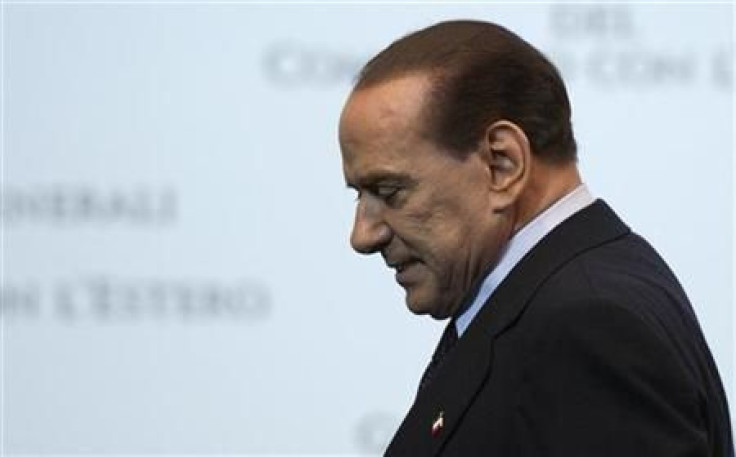Berlusconi Under Extreme Pressure to Resign

The chorus of voices in Italy demanding the resignation of Prime Minister Silvio Berlusconi is getting louder and louder.
As Berlusconi meets with other world leaders at the G20 summit in Cannes, France, six of his former loyalists in the Rome parliament have called for a new government after the cabinet failed to arrive at a consensus on the economic reform/austerity program Berlusconi promised following demands from European Union (EU) officials.
On Wednesday, the IPR Marketing Institute said Berlusconi's popularity rating in Italy dropped to 22 percent, a record low. A poll in the leftist La Repubblica daily newspaper claimed that 66 percent of Italian people have “zero” confidence in the Prime Minister.
In a letter published in the Corriere della Sera newspaper, the defectors pleaded with Berlusconi: “We are asking you to take an initiative which is appropriate to the situation. Be the backer of a new political phase and a new government which would have the task, from now until the end of the legislative term, of implementing the agenda agreed with our European partners and with it, the indications which came from the European Central Bank.
Reuters reported that another official of the ruling People of Freedom (PDL) party, Giuliano Cazzola, has also called for Berlusconi to step down immediately.
The government should resign and the PDL should manage a different solution without clinging to the alternative 'Us or new elections', he told Italian media.
Already earlier in the week, Italian President Giorgio Napolitano said he was exploring the possibility of forming a broader national unity government with officials from outside the ruling center-right coalition.
However, Berlusconi has thus far refused to step down, citing that it would be impractical to call new elections in the middle of such a grave economic crisis.
Meanwhile, as fears grow over Italy’s huge debt and ineffectual fiscal policies, the yield on Italian sovereign bonds have surged to all-time highs, well above 6 percent – even though the European Central Bank capped Italy’s borrowing costs in August through a bond purchase program.
A financial collapse in Italy, as the third largest economy in Eurozone, would be even more catastrophic than an implosion in Greece.
© Copyright IBTimes 2024. All rights reserved.











